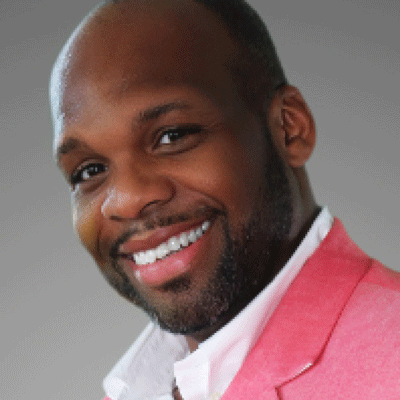John Pavlovitz walks a crowd of more than 600 through how to endure turbulence and how to stir it up
by Mike Ferguson | Presbyterian News Service

Photo by Timothy Eberly via Unsplash
LOUISVILLE — Brought on stage by a powerful version of “I Want My Life to Make a Difference” by G. Phillip Shoultz, III, who provided music for the Association of Partners in Christian Education‘s annual event this week, keynoter John Pavlovitz continued his theme Friday of dealing with the turbulence in our lives. Along with more than 500 people attending in person in Birmingham, Alabama, and another 150 or so online, Pavlovitz is exploring Mark 4:35-41, an account of Jesus’ stilling a storm for terrified disciples accompanying him on a boat.

G. Phillip Shoultz, III
“The question for today is, can comfort only truly come through the turbulence?” Pavlovitz asked. “Is the shaking the path through which we become the peacemakers? Can we give thanks for terrible things?”
The injuries we suffer “define the kind of people we become, the work we do and the mark we leave,” Pavlovitz said. Two days after his father died nine years ago, Pavlovitz was sitting in a coffee shop with a friend. “I know this is almost unbearable for you,” his friend said, “but you will be able to minister to people suffering loss at a much deeper level.” That thought “irritated me a little, but she was right,” Pavlovitz said. “I began to write about it the next day. Even though I was a grief zombie, I was able to connect with thousands of people through the experience of losing. It allows you to transform your pain into purpose.”
During the conference, Pavlovitz has been discussing “the systemic ills we’re carrying,” and he fleshed that out on Friday. “We live and teach and minister in the tension between the peacemakers and the fear-givers, whom we see everywhere,” he said. “Racism and bigotry are not only individual afflictions; they’re collective ones.”
“This is about your ability [as pastors and Christian educators] to show up in the storms of other human beings as the educators of faith. That is the single most pressing lesson plan,” he said.

John Pavlovitz
“A truth I want us to acknowledge today is that privilege of any kind is a fear insulator,” Pavlovitz said. As a white cisgender straight man, “I will never experience … the severity of the fears my LGBTQ friends have experienced. Empathy is the voice that says, ‘We are not free until we are all free.’”
Pavlovitz recounted some of his own story in the role he labeled “Super Christian Mega Pastor Man” and the pain of being fired from one ministry position after serving only a few months. “Authenticity and specificity were not things they really wanted at that church,” he said.
While he found himself in tears that first Sunday without responsibilities leading worship, “I then felt a lightness and a joy. For the first time in 17 years, I didn’t have a church community. I could stay home! I was free of the expectations of a community of people. I like to say I was given the gift to be able to ask everything and say anything.”
He started to write “clearly and specifically what I felt,” and soon was a guest on CNN. Below his face was this identifier: “John Pavlovitz, Pastor.”
“It could have said, ‘John Pavlovitz, Unemployed and Currently Despondent,” he said.
“Friends, I’m not advocating for you to jeopardize your career or your livelihood. But you may need to become the turbulence in order to bring peace to others,” he said. “This is the way of Jesus.”
“We are called to speak these days with a clarity and specificity that we maybe haven’t always had,” he said. “But we are known as the nice church,” a woman once told him. “I said, ‘Are there other kinds of churches I’m not aware of? Hi, we’re the distant and cold community.’ I said, ‘Nice is nice, but maybe you could try being Christlike. The Jesus you name and love, he was always loving but he wasn’t always nice.’ The reason he spoke with ferocity is he loved humanity enough to suffer on behalf of it.”
“People doing this work never say, ‘Could you be nicer?’ They usually say, ‘Why are people of faith so silent right now?’”
“In these days of great shaking, we may need to become turbulence to others, to those who exclude others based on an unchangeable part of who they are,” Pavlovitz said. “With our hands and voices and resources and platforms, we have to risk becoming the turbulence to the powerful and the privileged.”
“In the face of so much fear, we are called … to say something that is going to disturb somebody we want to have peace with,” he said. “I’m not praying for you to be fired. I’m praying for you to be fired up. May we be the kind of courageous people who will bring peace to those being shaken. Amen?”
![]() You may freely reuse and distribute this article in its entirety for non-commercial purposes in any medium. Please include author attribution, photography credits, and a link to the original article. This work is licensed under a Creative Commons Attribution-NonCommercial-NoDeratives 4.0 International License.
You may freely reuse and distribute this article in its entirety for non-commercial purposes in any medium. Please include author attribution, photography credits, and a link to the original article. This work is licensed under a Creative Commons Attribution-NonCommercial-NoDeratives 4.0 International License.